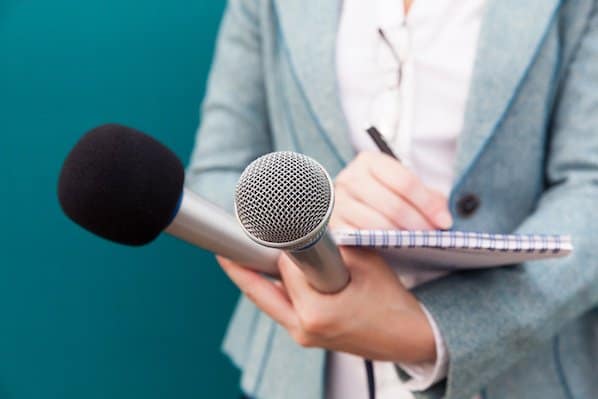
By Lara Lackie, Account Director at Eskenzi PR
Every time you speak to the media, you’re building awareness. The media provides name recognition/market perception for both you and your organisation. A successful interview can be a great lead generation tool for your sales team, as well as give brand support and third-party validation.
Getting Ready for the Interview
Your PR agency will have prepared briefing materials, so make sure to read it and review and potential/anticipated questions. Always be prepared and have back up data to support your points. Most importantly – know your story!
Determine how the interview might offer you the chance to make positive, actionable points regarding the topic/issue of focus.
Ensure you understand the type of story the reporter is writing, along with the outlet’s audience. There’s absolutely nothing wrong with asking the reporter if he or she knows about your organisation, products and markets. Knowing the answer to this will help you adjust your tone, language and content accordingly.
During the Interview
Indirectly tell the journalist where you want them to focus
- Make the most important point first.
- Back it up with facts or proof points.
- Give the reporter a quote or sound bite they can use.
- Summarise in a few succinct or memorable words.
Communicate with Authority
- Decide what points you want to make and repeat them but be careful not to use jargon.
- Try to avoid audible pauses (er…ah…um), however silent pauses are absolutely acceptable.
- Get to the point immediately. Stop talking when you’ve answered the questions
- Be interactive; but be mindful of the reporter’s time
- Stop and ask questions (ask the reporter if what you’ve just said makes sense)
- Be thoughtful. Take time to collect your thoughts before making a statement
- Correct misinformation immediately
Most of all – be aware: Your personal opinion becomes your organisation’s opinion. Questions about what you believe will be reported as the beliefs of your company. Be the humble, confident authority on the topic at hand.
Bridging Techniques and Phrases
Some media like to challenge its interviewee. You may encounter hostile reporters, or interviews where the journalist is looking to find dirt (for example, when asked to comment on a specific vendor’s licensing practices). Think about the question you would least like to answer, prior to the call, and practice your response.
Use “blocking” and “bridging” techniques to move the reporter to more comfortable ground and back to your messages. You can also use these techniques when an interview is tightly focused on a particular point, by bridging to a topic that’s more strategic to expand the scope of the interview. When asked an open-ended question, use this as an opportunity to reiterate your organisation’s key messaging.
Use pivot phrases to get you back to your key message, such as:
“I think what you’re really asking is …”
“That speaks to a bigger point …”
“You know, what’s important is …”
“We know that…”
“The thing is …”
“The real issue here is …”
Pitfalls to Avoid
Don’t multi-task while on a phone interview. Turn away from your computer and avoid your Smartphone. Never say “No Comment” (take advantage of your bridge techniques as discussed above). If you can’t answer, qualify why you can’t answer. Say you will get back to them and be sure to get back to them ASAP.
Don’t lecture; instead engage the reporter in a conversation. Do not reference other reporters or stories. Do not respond before hearing the entire question. Listen carefully and repeat tricky questions. Finally, don’t sell. The journalist isn’t a potential customer.
And remember…. NOTHING is ever off the record!








